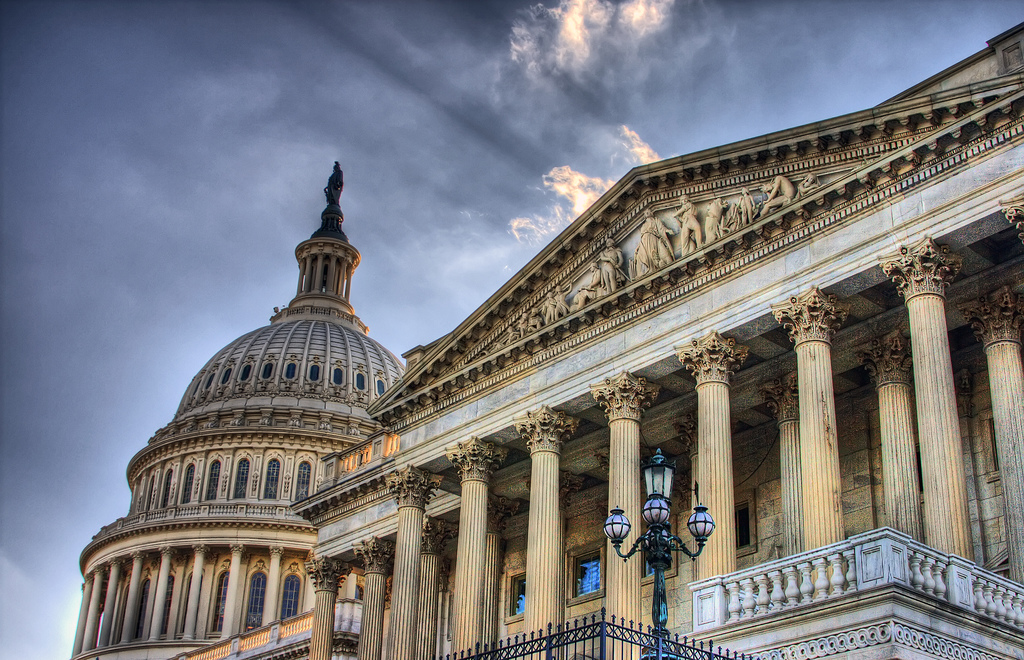 The push for a climate bill in 2010 isn’t ending with a whimper after all. Senate Democratic leaders are going to take a bill to the floor and bet that they can find 60 votes to pass it, Darren Samuelsohn reports in Politico. And it could happen by the end of July:
The push for a climate bill in 2010 isn’t ending with a whimper after all. Senate Democratic leaders are going to take a bill to the floor and bet that they can find 60 votes to pass it, Darren Samuelsohn reports in Politico. And it could happen by the end of July:
Senate Majority Leader Harry Reid (D-Nev.) confirmed Tuesday that he would gamble on the high-stakes legislation — much as he undertook health care and Wall Street reform — that for now remains in the rough-draft stage but that will soon be the subject of intense negotiations.
… Reid confirmed the bill will have four parts: an oil spill response; a clean-energy and job-creation title based on work done in the Senate Energy and Natural Resources Committee; a tax package from the Senate Finance Committee; and a section that deals with greenhouse gas emissions from the electric utility industry.
The oil-spill response section is the timely political hook, of course. Reid, John Kerry (D-Mass.), and other leaders hope a few Republicans will feel compelled to vote for drilling safeguards during the summer of the Gulf gusher — or pay an electoral cost if they don’t.
Instead of a comprehensive cap on carbon across the whole economy, the bill would cap emissions from just the electric utility sector — a compromise that Democratic leaders hope will be more palatable to many senators. David Roberts ran through the merits of a utility-only cap last month: Of all sectors of the U.S. economy, electric utilities are the biggest emitter. The cheapest ways to cut carbon pollution involve the inefficient electric-power sector (particularly coal-burning plants). It’s less attractive than an economy-wide cap, but probably better than no cap at all. Expect to hear much more about this.
But is this thing going to pass? It’s not clear — it never has been — how the bill will gain the support of Republicans and conservative Democrats in the Senate — where 41 noes outweigh 59 yeses.
Not surprisingly, Politico found plenty of Hill types willing to say why this won’t work and we should all crawl in bed and forget about it:
“Taking action and getting 58 votes — what’s it going to do?” said Senate Commerce, Science and Transportation Committee Chairman John Rockefeller (D-W.Va.). “The [U.S.] Chamber of Commerce is going to spend $75 million to try to defeat Democratic candidates.”
Robert Dillon, a spokesman for Sen. Lisa Murkowski (R-Alaska), ranking member of the Senate Energy and Natural Resources Committee, said he, too, is dubious of Reid’s plans, which appear to set aside only a limited amount of time for floor debate.
“They never miss an opportunity to seize on a crisis to turn to the far-left to-do list. This has been a big item on the far-left to-do list — a national energy tax,” Minority leader Mitch McConnell (R-Ky.) said.
It’s easy to predict failure. But this isn’t over yet.



